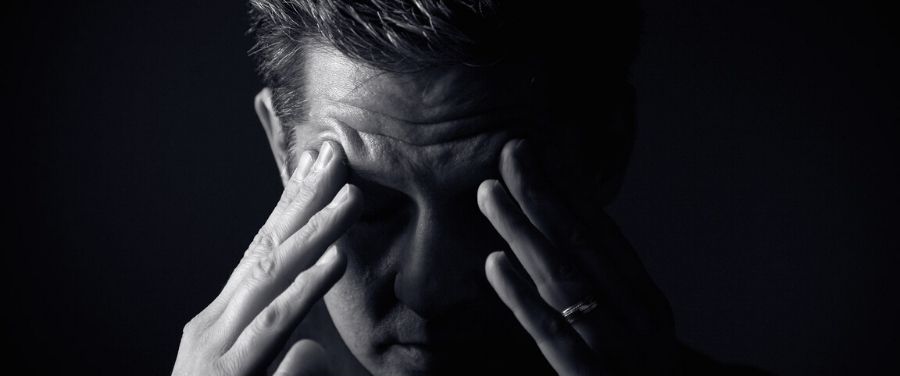WHAT ARE ANTIDEPRESSANTS?
Antidepressants are the medications that can help to relieve symptoms of depression, anxiety disorders, social anxiety disorder, seasonal affective disorder, and dysthymia, or mild chronic depression, as well as other conditions. Taking an antidepressant may be a part of your treatment plan, if you’re being treated for depression.
Antidepressants are used to balance chemical imbalances of neurotransmitters in the human brain that are believed to be responsible for the changes in behavior, mood or emotions. Antidepressants were first developed in the year 1950. The use of antidepressants become progressively more common in the last 20 years.
These depression medicines can help to improve your mood, increase your appetite and concentration and help you to sleep better.
HOW ANTIDEPRESSANTS WORK?
It’s not exactly known how antidepressants work.
But, it’s thought that they work by increasing the levels of chemicals in the brain called neurotransmitters. Certain neurotransmitters, such as noradrenaline and serotonin, are linked to mood and emotions. Also, neurotransmitters may affect the pain signals sent by nerves, which may explain why some antidepressants can help relieve the long-term pain.
HOW LONG WILL I NEED TO TAKE ANTIDEPRESSANT MEDICATION?
Duration of depression treatment and antidepressant medication depends on your depression. Most of the people need to take antidepressant for at least six to nine months, but you may need to take it longer, even if you feel better.

Some people take antidepressants for several years. Your doctor can help you decide when it’s the right time to stop and can work with you to stop gradually. Antidepressant medication is usually taken in the tablet form. When they are prescribed, you’ll start on the lowest possible dose of antidepressant thought necessary to improve your symptoms.
If you take an antidepressant for four weeks without feeling any benefit, speak to your doctor. They may recommend increasing your antidepressant tablets or trying a different medicine.
WHAT ARE THE SIDE EFFECTS OF ANTIDEPRESSANTS?
Any side effects will likely occur during the first two weeks, and then gradually wear off. Like all medications, antidepressants can have side effects. Depending on the type of drug used, some of the most common antidepressants side effects include —
- Headache
- Sleeplessness
- Nausea or Vomiting
- Reduced Sex Drive
- Dry Mouth
- Weight Gain
- Agitation
- Drowsiness
If the side effects of antidepressants are very unpleasant, or if they include thinking about the suicide, doctor should be informed at once.
ANTIDEPRESSANT EFFECTIVENESS:
A person can take several weeks to notice the effects of an antidepressant. Many people stop using them because they believe the medications are not working. There are many reasons that people may not see an improvement include —
- Drug not being suited to the individual
- Forgetting to take the medication at the right time
- A lack of monitoring by the health provider
- A need for additional therapies, such as cognitive behavioral therapy (CBT)
Keeping in contact with your doctor and attending the follow—up appointments helps to improve the chances of the antidepressant drug working.
It may be that the dosage needs changing or another medication would be more suitable. It’s important to take the antidepressant according to instructions, otherwise it will not be so effective.

WHAT ARE THE CAUTIONS IF YOU ARE TAKING ANTIDEPRESSANTS?
There are several things to consider when taking antidepressant medication. You should discuss these things with your mental health professional.
Antidepressants and Pregnancy:
As a precaution, antidepressant medication aren’t usually recommended for most pregnant women, especially during the early stages of a pregnancy. It’s because it might be dangerous for your baby. If you are pregnant and depressed, you should consult your doctor.
Antidepressants and Breastfeeding:
Breastfeeding women aren’t recommended to take the antidepressant.
Speak to your doctor for advice before start the medication.
Children and Young People:
Children and young people under 18 years aren’t usually recommended to take the antidepressant medication. It’s because there are evidence that in rare cases, antidepressant can trigger thoughts about suicide and acts of self-harm in this age group. Concerns have been raised that antidepressant’s use could affect the development of the brain in children and young people.
Antidepressants and Alcohol:
You should avoid drinking alcohol if you’re under antidepressant medication, as alcohol is itself a depressant and drinking alcohol can make your symptoms worse.

If you consume alcohol while taking types of antidepressants called monoamine oxidase inhibitors (MAOIs) or tricyclic antidepressants (TCAs), you may become drowsy and dizzy. You’re less likely to experience unpredictable or unpleasant effects if you consume alcohol while taking a serotonin-noradrenaline reuptake inhibitor (SNRI) or an SSRI antidepressant, but avoiding alcohol is often still recommended.
Antidepressants and Illegal Drugs:
If you’re under antidepressant medication, it’s recommended to stop the use of illegal drugs immediately, particularly if you’ve been prescribed a TCA. This is because they can cause unpredictable and unpleasant effects. You should avoid taking —
- Cannabis
- Cocaine
- Heroin
- Ketamine
- Amphetamines
TAKE AWAY
Some studies reveal that a well—balanced healthy diet, plenty of exercise, and staying in touch with family and friends can reduce the risk of depression and recurrences. Cognitive behavioural therapy, interpersonal therapy (IPT), counselling, electric shock treatment are great alternatives of antidepressants. Depression is a serious condition that may need medical treatment. Anyone who experiences the symptoms of depression should seek medical advice.
RELATED ARTICLES:
- Post-Traumatic Stress Disorder : Causes, Symptoms and Treatment
- Paroxetine Uses, Dosage And Side Effects
- Buspirone : Side Effects, Uses, Interaction and Precautions
- Citalopram : Side Effects, Dosage, Uses and Interactions
- Lexapro (Escitalopram) : Uses, Side-Effects, Dosage, Interaction and Precautions
- St. John’s Wort : Side Effects, Uses, Dosage, Interaction and Precautions
REFERENCES:
- Lois Zoppi, BA Reviewed by Dr. Jennifer Logan, MD, MPH Antidepressants: Types and Side Effects
- David Levine, May 3, 2019. Should I Take Antidepressants?

Excellent article! We will be linking to this particularly great content on our site. Keep up the good writing.